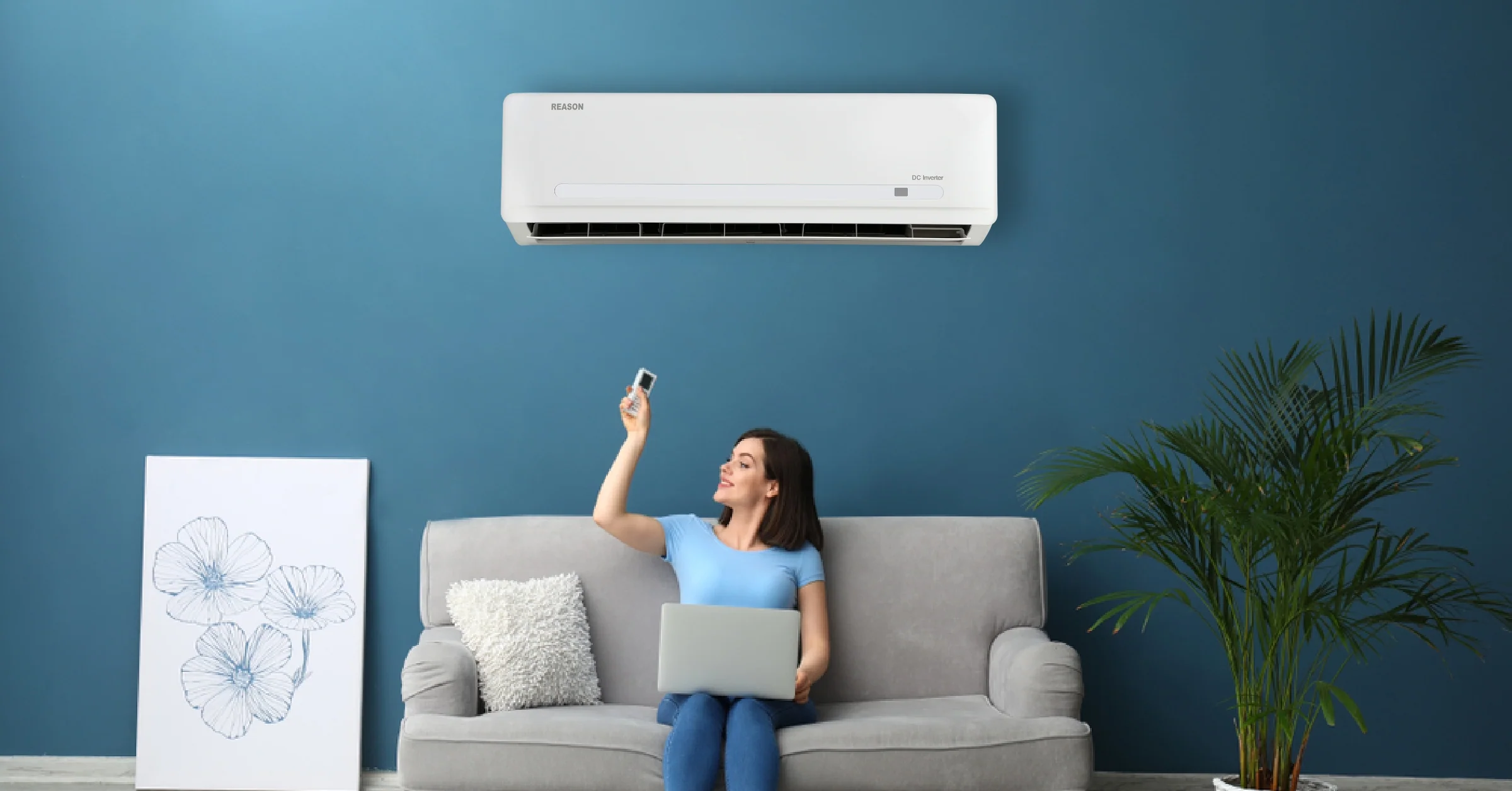Introduction
Inverter technology has revolutionized the air conditioning industry, bringing a host of benefits that extend far beyond mere temperature control. As homes and offices strive for greater energy efficiency and smarter climate solutions, inverter technology stands out as a game-changer. This comprehensive guide delves into the intricacies of inverter technology, its advantages, applications, and its impact on modern air conditioning systems.
Understanding Inverter Technology
1. What is Inverter Technology?
Inverter technology refers to the use of a variable-speed compressor in air conditioning systems. Unlike traditional air conditioners that operate on a fixed-speed compressor, inverter units can adjust the compressor’s speed to match the cooling needs of the space. This modulation of speed leads to more precise temperature control and improved energy efficiency.
2. How Inverter Technology Works
Traditional air conditioners operate with a compressor that turns on and off to regulate temperature. This start-stop cycle can be inefficient and leads to higher energy consumption. In contrast, inverter air conditioners use a variable-speed compressor that adjusts its speed based on the cooling demand. When the desired temperature is reached, the compressor slows down rather than turning off completely, thus maintaining a consistent temperature with minimal energy use.
3. Components of an Inverter AC System
- Variable-Speed Compressor: The core of inverter technology, allowing for dynamic adjustments to speed and power consumption.
- Inverter Circuit Board: Manages the compressor speed and ensures smooth operation.
- Thermostat: Monitors the indoor temperature and signals the inverter circuit to adjust the compressor speed.
- Fan Motor: Adjusts its speed to complement the variable-speed compressor, enhancing overall efficiency.
Benefits of Inverter Technology
1. Enhanced Energy Efficiency
Inverter technology offers significant improvements in energy efficiency. By adjusting the compressor speed according to the cooling demand, inverter ACs consume less power compared to traditional units. This results in lower electricity bills and a reduced carbon footprint.
- Reduced Power Consumption: Traditional units often waste energy by operating at full capacity even when less cooling is needed. Inverter units, on the other hand, adjust their power usage based on real-time requirements.
- Lower Operating Costs: The increased efficiency translates to savings on energy bills, making inverter technology a cost-effective choice in the long run.
2. Improved Temperature Control
Inverter ACs provide more precise temperature control. The ability to modulate the compressor speed means that these units can maintain a consistent indoor temperature without the fluctuations common in non-inverter models.
- Stable Temperature: Inverter systems reduce temperature swings, creating a more comfortable indoor environment.
- Enhanced Comfort: The consistent temperature control ensures that rooms are neither too hot nor too cold, improving overall comfort.

3. Quieter Operation
Inverter technology contributes to quieter operation. Traditional AC units often generate noise during the start-up and shut-down phases. Inverter units, however, operate at lower speeds and more smoothly, resulting in quieter performance.
- Reduced Noise Levels: The gradual ramp-up and down of the compressor speed minimize noise compared to the abrupt on-off cycles of traditional units.
- Comfortable Living Environment: Quieter operation enhances the comfort of living and working spaces, particularly in noise-sensitive environments.
4. Longer Lifespan
The variable-speed operation of inverter ACs reduces wear and tear on components. The compressor doesn’t experience the same level of stress as in traditional units, contributing to a longer lifespan and fewer maintenance issues.
- Reduced Wear and Tear: The smoother operation leads to less strain on the compressor and other components.
- Extended Service Life: With proper maintenance, inverter ACs generally have a longer operational life compared to their non-inverter counterparts.
5. Environmental Benefits
Inverter technology supports environmental sustainability by reducing energy consumption and lowering greenhouse gas emissions. More efficient use of power contributes to a smaller carbon footprint.
- Lower Carbon Emissions: Reduced energy consumption translates to fewer emissions from power generation.
- Energy Conservation: Inverter technology aligns with global efforts to promote energy efficiency and reduce environmental impact.
Applications of Inverter Technology
1. Residential Air Conditioning
Inverter technology is increasingly popular in residential settings due to its efficiency and comfort benefits. Homeowners can enjoy consistent temperatures and lower energy bills, making inverter ACs a preferred choice.
- Home Cooling Solutions: Inverter units are ideal for cooling different rooms or zones in a home, providing customized comfort.
- Energy Savings for Homeowners: The reduced energy consumption helps homeowners save on electricity costs.
2. Commercial Air Conditioning
In commercial environments, inverter technology offers efficiency and performance advantages. Businesses benefit from the lower operating costs and improved climate control.
- Office Buildings: Inverter ACs can maintain a comfortable working environment while minimizing energy costs.
- Retail Spaces: Enhanced temperature control helps create a pleasant shopping experience for customers.
3. Industrial Applications
Inverter technology is also applied in industrial settings where large-scale cooling is required. The efficiency and durability of inverter systems make them suitable for various industrial applications.
- Manufacturing Facilities: Consistent temperature control is crucial for production processes and equipment longevity.
- Data Centers: Inverter ACs help maintain optimal conditions for sensitive electronic equipment.
Choosing an Inverter AC System
1. Factors to Consider
When selecting an inverter air conditioning system, several factors should be considered:
- Cooling Capacity: Choose a unit with the appropriate cooling capacity for your space.
- Energy Efficiency Rating: Look for models with high Seasonal Energy Efficiency Ratio (SEER) ratings.
- Brand and Model: Research reputable brands and models known for reliability and performance.
2. Installation and Maintenance
Proper installation and regular maintenance are essential for optimal performance. Ensure that the unit is installed by a qualified technician and follow the manufacturer’s maintenance recommendations.
- Professional Installation: Proper installation ensures that the unit operates efficiently and reliably.
- Regular Maintenance: Regular servicing helps maintain performance and extend the lifespan of the AC system.
Future Trends in Inverter Technology
1. Advancements in Technology
The future of inverter technology includes advancements that further enhance efficiency and performance. Emerging trends include:
- Integration with Smart Home Systems: Inverter ACs are increasingly being integrated with smart home technologies for enhanced control and automation.
- Improved Refrigerants: The development of more environmentally friendly refrigerants will contribute to greater sustainability.
2. Increased Focus on Sustainability
As the world continues to prioritize sustainability, inverter technology will play a key role in reducing energy consumption and environmental impact.
- Green Building Standards: Inverter ACs align with green building standards and certifications.
- Innovation in Energy Efficiency: Ongoing research and development will drive innovations in energy-efficient cooling solutions.
Conclusion
Inverter technology has transformed the air conditioning industry, offering numerous benefits that enhance comfort, efficiency, and sustainability. As homeowners, businesses, and industrial facilities seek more effective climate control solutions, inverter technology stands out as a leading choice. Understanding the role of inverter technology and its advantages helps in making informed decisions for a more comfortable and energy-efficient future.

